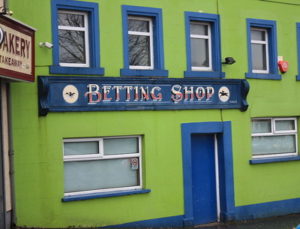
Until the Betting and Gaming Act of 1960 was introduced to British parliament, gambling in the United Kingdom was either done at racetracks or via illegal bookmakers that essentially operated on the black market. The existence of such bookies can be dated back to a time when a man named William Ogden offered fixed odds on all of the horses in a race, which had never been done before.
Nowadays we take that sort of thing for granted, but it was revolutionary when Ogden started doing it and other people, then companies, soon followed suit. This eventually led to Betting and Gaming Act being passed, which was the government’s attempt to control (and of course tax) an industry that it knew it would be able to outlaw altogether. Within six months, 10,000 such shops existed on Britain’s streets, but do we know which was the first?
The Build-Up To Bookmakers Becoming Legal
 Bookmaking had been a popular activity in Britain in the 18th and 19th centuries, but such an activity soon resulted in opposition factions rebelling against it. Eventually this led to the Gaming Act of 1845, which essentially outlawed bookmaking and forced the bookies underground. All that happened was that arrests for gambling went up, so the Betting House Act of 1853 was introduced.
Bookmaking had been a popular activity in Britain in the 18th and 19th centuries, but such an activity soon resulted in opposition factions rebelling against it. Eventually this led to the Gaming Act of 1845, which essentially outlawed bookmaking and forced the bookies underground. All that happened was that arrests for gambling went up, so the Betting House Act of 1853 was introduced.
Still nothing could stop people from wanting to place bets and others being willing to accept their wagers. At the twentieth century got underway, it gradually became accepted that gambling wasn’t going to go away and so instead the question should be about how the industry could be regulated. When alcohol had become a problem, fair licensing laws saw things calm down; could the same happen with gambling?
The likes of Joe Coral and William Hill, who would later become such important names in the betting industry, had cut their teeth as runners for illegal bookmakers. That was positive proof that something needed to be done, so the Royal Commission on Lotteries and Betting sat between 1932 and 1933. Despite the passing of the 1906 Street Betting Act, the Commission soon learned that it was unlikely a single bet had been stopped because of it.
The likes of William Hill and Joe Coral had been using a loophole in the law to accept postal bets, leading to the Commission discussing the possibility of legalising betting shops. In the end, the outbreak of the Second World War ended up taking the main focus of politicians, but when the War was over a second Royal Commission was formed to continue the work of the first.
Henry Willink, who was the Chairman of the Commission, agreed with his partners that the issues many people had with gambling had been formed out of a misplaced sense of morality by the Victorians. That, on top of the realisation from the government that a large revenue could be brought in thanks to taxing a legalised form of betting, led to a sea change in the thought process of many around the idea of legalising betting shops.
The Act Is Passed
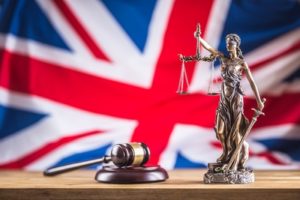 One of the second Royal Commission’s chief recommendations was that betting shops should be legalised, with anyone running an illegal shop given a licence rather than punished. Despite the government taking the recommendations on board, change was a slow process. It wasn’t until 1960 that an Act was passed that would allow betting shops to finally trade legally on the streets of Britain.
One of the second Royal Commission’s chief recommendations was that betting shops should be legalised, with anyone running an illegal shop given a licence rather than punished. Despite the government taking the recommendations on board, change was a slow process. It wasn’t until 1960 that an Act was passed that would allow betting shops to finally trade legally on the streets of Britain.
Even then, the Act didn’t come into effect immediately. The Betting and Gaming Act of 1960 wasn’t just about bookmakers, either. Pubs were allowed to install slot machines, for example, whilst small sums of money could be gambled in games of skill like Bridge. It was unquestionably the move to legalise betting shops that had the biggest impact on the industry in Britain, however.
The likes of William Hill, Joe Coral and Ladbrokes had positioned themselves well to ensure that they could act swiftly to the new legislation. By the time that bookmakers’ premises could open their doors on the 1st of May 1961, the major companies were ready to do just that. In fact, the shops began to open up at a rate of around 100 a week, with 10,000 having done so by November of 1961.
What Betting Shop Was The First?
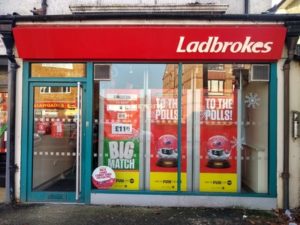 The one question that can’t be answered with any sense of certainty is which shop, exactly, was the first to open its doors. What we can tell you, though, is that a number of companies that are well-known and respected nowadays will have been quick off the mark in terms of opening up betting shops as soon as they were able. The aforementioned Coral and Ladbrokes will have been there, for example.
The one question that can’t be answered with any sense of certainty is which shop, exactly, was the first to open its doors. What we can tell you, though, is that a number of companies that are well-known and respected nowadays will have been quick off the mark in terms of opening up betting shops as soon as they were able. The aforementioned Coral and Ladbrokes will have been there, for example.
William Chandler had also founded a bookmaking company in 1946, dying a few months later. His sons, Victor and Jack, took over the running of the company whilst his other sons, Charles and Percy, took over Walthamstow Stadium and the greyhound racing that took place there. That being said, the first Victor Chandler betting shop didn’t open up until 1963.
Similarly, William Hill wasn’t as keen as many of his competitors to rush to open a betting shop. Not only that, he’d actively campaigned against them becoming legal and called them a ‘cancer on society’. He was a socialist, believing that working class people would be the victims of the new shops. Eventually he realised that opening shops was the only way to keep his business alive, deciding to do so in 1966.
Allowed But Never Encouraged
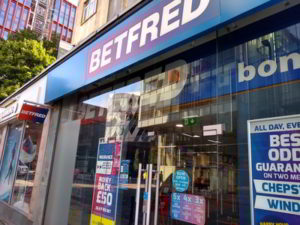 That betting shops became legal in 1961 and widespread over the years that followed is slightly surprising when you consider the state of the shops at the time. The notion from the British government over the years was that betting was to be allowed but that it should never be encouraged. Consequently, basic amenities were not allowed at betting shops during those formative years, including things like customer toilets.
That betting shops became legal in 1961 and widespread over the years that followed is slightly surprising when you consider the state of the shops at the time. The notion from the British government over the years was that betting was to be allowed but that it should never be encouraged. Consequently, basic amenities were not allowed at betting shops during those formative years, including things like customer toilets.
There was also a desire to ensure that betting shops weren’t seen as appealing places. The windows had to be blacked out, for example, in order to stop people looking in and feeling enticed by the promise of big wins. Similarly, many bookies struggled with the notion of transitioning from being an underground operation to a public one stopping them from embracing what they could offer.
Indeed, horse races were described to punters in monotonous tones, with the mood of the venues being largely dreary. No wonder, of course, given that the legislation introduced allowed them to open but stopped them from offering such basic things as drinks. In fact, it wasn’t until 1986 that legislation was introduced to change that fact. Alongside it, comfortable seating and televised sport were also both allowed.
‘Dragged Out Of The Dark Ages’
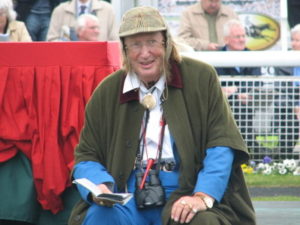
Whilst many still saw betting parlours as being uninviting when the first opened in 1961, others believed that the move allowed them to be ‘dragged out of the Dark Ages’. John McCririck, the one-time betting and racing guru of Channel 4 fame, was one such person. Having previously had to find dodgy locations such as public urinals to place a wager, punters could now do so in relative comfort.
The move also ensured that most of the illegal street bookmakers were wiped out, leaving only the successful ones able to afford the costs of rent on premises, paying staff and having the capital required to operate. Whilst some made it through the vetting process, most didn’t and so the new industry was much more trustworthy for clients to get involved with. John Banks, a Glaswegian, described having a betting shop as being a ‘licence to print money’.
That’s not to say that it wasn’t dark inside the premises, however. The dark windows obviously stopped much brightness from getting inside, but it wasn’t helped by mesh grilles sitting in front of Formica counters. Back then it was perfectly legal to smoke indoors, so a veil of cigarette smoke would also hang around inside the shops. Commentary on races would be provided by speakers from the Extel wire service.
We might not know exactly which betting shop was the first to open its doors, nor do we have much of a clue which of the venues that opened in 1961 are still open today. Instead, we can just form a vague sense of what it must have been like to head to a bookies to place a bet when it was still a relatively new concept. Such is the extent to which things were out of the hands of the bookmakers, even the weather could dictate if they could open.
